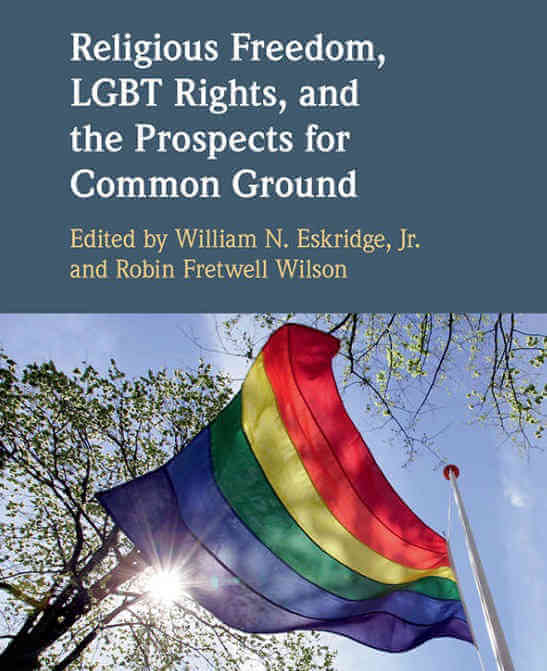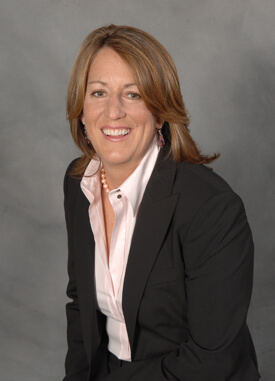It is apparent early in “Religious Freedom, LGBT Rights, and the Prospects for Common Ground” that most of the authors of its 35 essays and Robin Fretwell Wilson and William Eskridge, the book’s editors, are not being honest with readers.
The book’s premise is that there is a conflict between laws that protect LGBTQ people from discrimination in housing, employment, public accommodations, and other important aspects of life and the right to the exercise of religion that is guaranteed to all Americans under the US Constitution’s First Amendment as well as various federal and state laws. While they repeatedly cite the small number of cases in which two bakers, two florists, one venue, and a photographer refused to serve lesbian and gay couples who were getting married, no one in this book establishes that these few cases represent anything more than the last gasps of a right wing movement that has battled for decades to treat LGBTQ people badly and has now lost significant ground in that fight.
We have more than 50 years of experience with the Civil Rights Act of 1964 that barred discrimination against a number of protected classes — not including sexual orientation and gender identity — and that federal law has accommodated religious objectors and issues related to organizations affiliated with religious institutions. There have been no complaints from the religious right about that law.
Currently, 21 states and the nation’s capital bar discrimination in employment and housing based on sexual orientation and gender identity and 20 of those also bar discrimination in public accommodations, according to the Human Rights Campaign, the nation’s largest LGBTQ lobby. Another one of the 21 bars discrimination in public accommodations, but regarding sexual orientation. There are many local and county jurisdictions that have enacted such laws. Forty-seven states, including the 21, have anti-discrimination laws of one sort or another. These laws vary in their reach and the protections they offer.
In 1982, Wisconsin became the first state to pass these protections for LGBTQ people. The concern about anti-discrimination laws constraining the ability of the religious to abuse LGBTQ people was first raised in 2008 in “Same-Sex Marriage and Religious Liberty: Emerging Conflicts,” a book by Wilson, Douglas Laycock, a law professor at the University of Virginia, and Anthony Picarello, the general counsel at the US Conference of Catholic Bishops. Apparently, it took 26 years for this conflict to emerge. While the few conflicts since then have received a great deal of press coverage, they remain few and certainly do not support the sweeping religious exemptions in established law that most of the authors in this book support.
One of the authors, Ryan Anderson, a staffer at the right wing Heritage Foundation who is known for his anti-LGBTQ commentary, did not pretend that this conflict exists. Comparing the experience of LGBTQ people to women and African-Americans, Anderson asserted that LGBTQ people do not need the same protections as those two groups but also wrote that the conflicts “involve an astonishingly small number of business owners who cannot in good conscience support same-sex wedding celebrations.”
Anderson is wrong about the extent to which LGBTQ people experience discrimination. And he does not understand that he just argued against this book’s central thesis.
Jennifer Pizer, the law and policy director at Lambda Legal, the LGBTQ rights law firm, cut through the smoke with the first sentence of her chapter.
“Let’s be honest,” Pizer wrote. “The national conversation is not really about wedding cakes and who pees where. It is about whether LGBT people are equal in the country and whether we are entitled to be treated like everyone else in public life.”
This 498-page book also ignores the long anti-LGBTQ histories of some of the institutions represented by authors from the National Association of Evangelicals, the Mormon Church, the Roman Catholic Church, and other groups. Most of the authors present themselves as earnest promoters of compromise who seek to extend some legal protections to LGBTQ people in exchange for broad exemptions for the religious from anti-discrimination laws. None of these groups expressed any interest in compromise when they believed they were beating the LGBTQ community.
When institutions that opposed or objected to overturning sodomy laws, as the US Supreme Court did in 2003, opposed including sexual orientation and gender identity as protected classes in anti-discrimination laws, as these groups have for decades, and opposed marriage, as these groups did in 2015 when the US Supreme Court required the states to issue marriage licenses to same-sex couples, it is reasonable to ask what prompted this remarkable change in their position. That question is not asked or answered in this book.
The answer is that these groups understand that their longstanding and vigorous opposition to the LGBTQ community may have cost them their future. As they opposed us, frequently using vile anti-LGBTQ language, they came to be identified as solely anti-LGBTQ — and adherents, especially younger adherents, began to abandon them. This new posture, which I suspect they would give up should the fortunes of the LGBTQ community be reversed, is mere public relations and an effort to regain the status quo ante where they could freely discriminate against LGBTQ people.
Most of the authors are law professors — Eskridge, who is gay, teaches at Yale and Wilson teaches at the University of Illinois — and so the chapters suffer from a tedious redundancy. Several authors noted that others had already commented on the topic they proposed to explore and then they repeated what others had already written.
In the end, “Religious Freedom, LGBT Rights, and the Prospects for Common Ground” is just a tiresome academic exercise. It has been settled law in this country since 1990 that all of us, including the religious, have to obey laws of general application as long as those laws are applied neutrally. This book offers no argument for overturning that.
RELIGIOUS FREEDOM, LGBT RIGHTS, AND THE PROSPECTS FOR COMMON GROUND | Edited by William N. Eskridge, Jr. & Robin Fretwell Wilson |Cambridge University Press | $72.50 | 564 pages
































